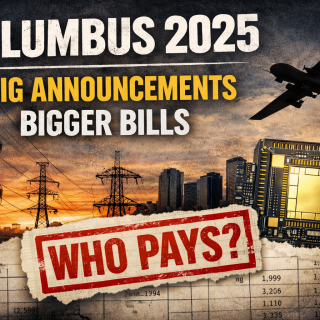Advertisement
I was literally ill the day after the presidential election of 2016, and two days afterward, I called in black. I still can scarcely believe the results, and often wonder if I’m in the Twilight Zone, on Candid Camera, or dead and in purgatory.
I watched the primaries, and I kept telling people the man who currently occupies the White House could not possibly win; his early supporters were a tiny minority of a minority within the Republican party. Of course with fourteen candidates in the race, there was bound to be winnowing out, and some of those names were not unexpected–e.g., Carly Fiorina. When the current president was the last man standing, I was still a long way from worried. After all, what sane, thinking person could vote for this man? He was–and still is–a liar, openly racist, sexist, homophobic, Islamophobic, misogyinistic, rude, incredibly thin skinned, a self-admitted sexual predator, public adulterer, thrice married–his evangelical supporters have some explaining to do–and just plain not nice. And that hair.
But as summer turned into fall, I became uneasy. The man’s crowds were huge, enthusiastic, and so openly hostile to the outgoing president and Hillary Clinton, the woman who hoped to be his successor. Supporters of her main challenger, Senator Bernie Sanders, were convinced she had stolen votes from him, and they were not in a forgiving mood. Black Americans were, for the most part, uninterested. Clinton herself lacked a message other than that her opponent was not morally, intellectually or temperamentally fit to be president of the United States and leader of the free world. When she called her Republican opponent’s supporters “a basket of deplorables,” my heart sank. I don’t think it is ever a good idea to insult voters. Even so, I was betting that Clinton would win in the Electoral College. Obviously I was–as my late mother used to say–as wrong as two left shoes. C’est la vie.
Now, thirteen months later, the shock felt by me and millions of others still has not worn off. How do we explain the 2016 election? In some ways, it was less about Clinton and more about Barack Obama, the nation’s first black president. Since he wasn’t on the ballot, the anger and disgust that millions of whites felt about having a black president for eight years was transferred to the woman–the white woman–who wanted to step into his shoes. Indeed the slogan should have been Make America White Again. It was the year of the angry white voters. They no longer had to hide their revulsion about blacks in general and Obama in particular.
There has been a smattering of books in the last several years exploring the theme of angry white voters, especially white men, but Katherine J. Cramer’s The Politics of Resentment is different in its conclusion than the other books. Cramer cites the antipathy between rural and urban voters as the cause of Wisconsin voters’ ire.
She says this is most clearly seen in the election and recall vote against Scott Walker, the Republican governor of Wisconsin. (Walker beat back the recall effort and was subsequently reelected to another four-year term as governor.)
Part of his appeal was that he took on the so-called liberal elites, whom he characterized as lazy, over indulged, and overpaid to the detriment of working people who were barely making it. He quickly moved to strip bargaining rights from unionized public employees. The popularity of the bill outside of Milwaukee and Madison was stratospheric. (Let’s face it; it is for the most part the preferences of the elites that are reflected in America’s polices. The rural voters in Wisconsin are indeed onto something.) At last here was a politician who would take on those city dwellers who are getting ahead at the expense of rural and small town America.
There has long been a strain of thought in America that rural people are closer to everything that matters–the land, their neighbors, God–and that they are the keepers of America’s most important values: hard work, thrift, love of country. It is Thomas Jefferson’s yeoman farmer writ large. Even Jefferson was wary of urbanites. He once harrumphed of several opponents, “They live in cities.”
Cramer, an urbanite and professor of political science at the University of Wisconsin-Madison, tells us that “Divides with the identifiers of the two parties in terms of religious preferences, attitudes toward race, and racial demographics themselves are deeper than ever.” Cramer said that multiple studies across countries show that when the distance between low- and middle-class voters is small, the middle-class and the elites are more likely to support programs for this population. Likewise, when that difference is very large, as it is now, the opposite is true. Indeed, what we see is that those toward the bottom of the economic ladder will often vote against candidates who support programs that could help them. Why would people who need help from the government turn on it? To most of us, that makes very little sense.
Cramer began crisscrossing Wisconsin in 2007 and continued to do so through 2012 in order to learn more. She talked to scores of urban and rural voters on multiple occasions. Among the people she studied, Cramer found two interesting things: a deep cleavage between rural and urban people, and tremendous resentment between the haves and the have nots.
The rural people Cramer spoke with truly believe they are getting the short end of the stick when it comes to government, and that it’s happening because the urbanites look at them as dumb hicks. They are also angry at other groups, such as racial and ethnic minorities–indeed, some of the voters had no qualms expressing their dislike for blacks, Mexicans, and Jews–who they think lack initiative, are lazy, and don’t deserve to be helped by the taxpayers. Their resentment is economic, spatial, racial, and anti-government, and it is so deep that they often end up voting against their own economic interests. However, they don’t see it that way; they see their political proclivities as sticking it to the elites who ignore them. Nah, nah, nah, nah, nah.
Cramer calls this “rural consciousness.” Their identity is more reflected in place, race–of which she says little about, but that may be because Wisconsin is Wonder Bread-white–class, and economic issues rather than party affiliation, and many of the politicians of the last forty plus years have been exceptionally skilled at exploiting their anger. The 2016 presidential election is their crowning achievement.
The Politics of Resentment is certainly thought provoking, although not for the casual reader. Policy wonks and politicos from both parties, however, should read it and heed its message. I have a master’s degree in political science, and I had never thought about nor studied the voting behavior of rural people. Indeed the last time the rural population was on the front burner in American life was during the presidential campaign of 1960. The deplorable existence of the white, rural poor helped launch Lyndon B. Johnson’s the War on Poverty.
Resentful voters are not going away. They will continue to wreak havoc with elections if politicians, political scientists and those who develop public policy don’t sit up and take notice.



